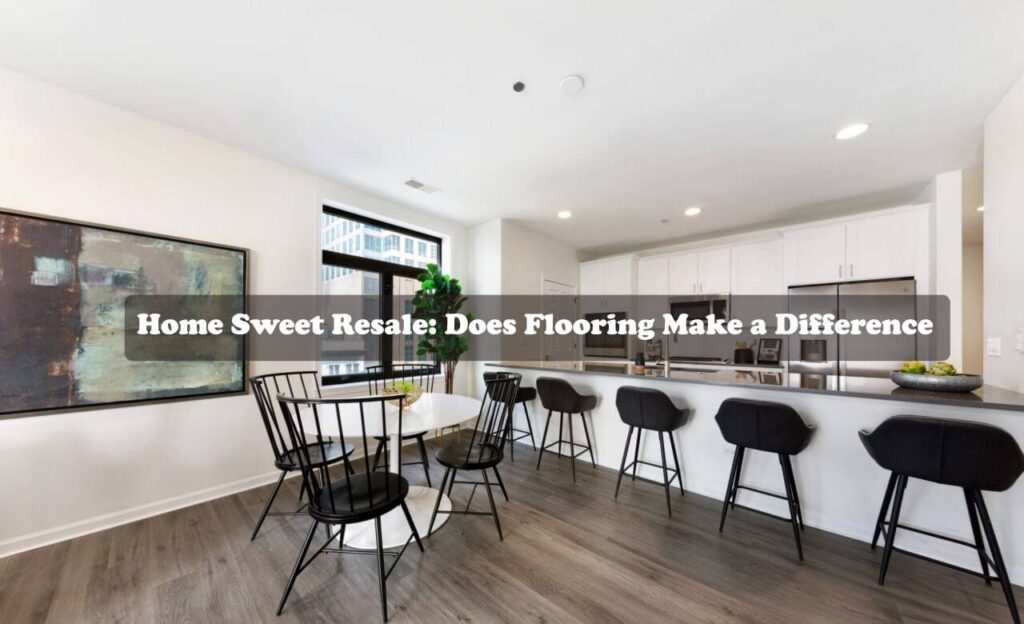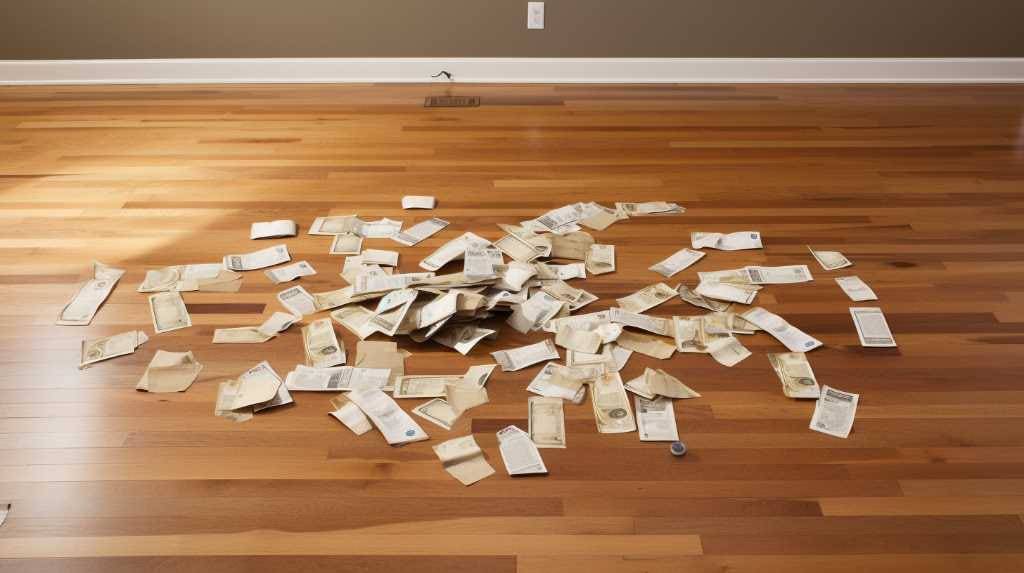Many homebuyers consider future resale value when purchasing a property. After all, even with recent dips in mobility, Americans are still on the move! Inheriting the family home is less common, making resale value a key financial consideration. So, when buying or renovating, maximizing return on investment (ROI) is wise. But does flooring matter when it comes to resale value? And if so, which type gives you the best bang for your buck?
Does Wood Flooring Really Mean More Money at Resale? Not as Simple as You Think.
There’s no denying the allure of wood floors. They add warmth, beauty, and undeniable style to any home. While you might not personally love their cool touch or hardness (area rugs can fix that!), their visual appeal is undeniable.
But does all that beauty automatically translate to higher resale value? Not quite. The truth is more nuanced.
Engineered wood has climbed the popularity ladder, even surpassing solid wood in some regions. Meanwhile, laminate often gets labelled with a “lower resale value” compared to its wood counterparts.
Resilient flooring like vinyl tends to rank even lower, although high-quality options like rigid core luxury vinyl plank blur the lines. And let’s be honest, wall-to-wall carpeting doesn’t typically scream “high resale value” due to its relatively short lifespan (5-15 years).
Studies do seem to support wood’s appeal. A USA Today study using National Association of Realtors data found 54% of potential buyers were willing to pay more for wood floors, up to $2,080. However, it’s crucial to remember that some studies use speculative terms when linking wood to higher resale values.
Ultimately, a floor’s resale value hinges heavily on perception, not just hard data. While the perception of wood being a valuable selling point is strong and widespread, it’s still based on perception, not definitive data.
Here’s the takeaway: Consider the pros and cons beyond resale value. Choose flooring that fits your lifestyle, budget, and aesthetic preferences. While wood might be a popular choice, remember, it’s not the only path to a happy (and potentially profitable) resale!
Higher Resale Value: Difficult to Verify
The truth is, there’s little concrete evidence to prove that wood, laminate, or other specific flooring types automatically boost your home’s resale value. While the National Wood Flooring Association claims real estate agents believe wood floors help homes sell faster, sell easier, and fetch higher prices, their press release lacks supporting methodology.
And forget trying to find data on specific flooring types on major real estate platforms like Zillow or Realtor. They don’t differentiate by flooring material.
Even “Cost vs. Value Reports,” lauded for their return-on-investment insights, mainly focus on combined projects like bathroom remodels, roofs, or decks, not single-material upgrades like flooring.
So, what gives? Does this mean real estate professionals are just guessing? Not quite.
These reports often consult experienced Realtors, builders, and designers for their subjective perceptions about resale value. It’s essentially gathering thousands of opinions and folding them into “hard data.”
Don’t Floor Yourself with Resale Myths: Choose What You Love!
While we all want to maximize value when selling a home, the truth is, there’s limited hard data linking specific flooring types to higher resale prices. Think “wood floors = more money”? It’s more speculation than certainty.
Sure, many believe hardwood adds more value than other options like carpet or laminate. But their opinions, while valuable, lack concrete dollar amounts or definitive studies.
Here’s the bottom line: Don’t choose your flooring solely based on perceived resale value, especially if you plan to stay put for a while. Instead, pick what suits your lifestyle, budget, and aesthetic needs. A happy homeowner equals a well-maintained home, which ultimately attracts buyers regardless of the floor beneath their feet!
Flooring FAQs: Mythbusting Your Resale Value Worries
Q: Will specific flooring types, like wood, automatically boost my home’s resale value?
A: The short answer is: we don’t have concrete proof. While opinions suggest wood floors might be perceived as valuable, hard data linking specific types to higher resale prices is limited. Don’t base your choice solely on resale potential.
Q: What about claims from real estate agents or industry reports?
A: These often gather subjective opinions, not definitive data. While valuable insights, they’re not the same as cold, hard facts.
Q: Should I install flooring based on the opinions of others?
A: Absolutely not! Prioritize your needs, budget, and preferences. Choose flooring you’ll love living with, as a happy homeowner translates to a well-maintained home that appeals to buyers.
Q: So, resale value doesn’t matter at all?
A: Not entirely. A well-maintained home with beautiful flooring (regardless of type) is always attractive. But don’t compromise your happiness for speculation.
Q: What are some good resources for choosing flooring?
A: Consult reputable home improvement websites, magazines, or talk to professionals like designers or flooring specialists like Dex Flooring. They can help you find options that balance your needs and aesthetic preferences.
Bonus Q: Should I ditch my beloved carpet just because it might not have “high resale value”?
A: Only if it’s worn, outdated, or doesn’t suit your lifestyle! A clean, well-maintained carpet can still be a comfortable and practical choice.


